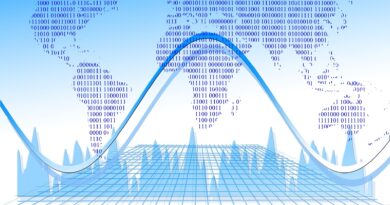The Impact of Sports Analytics: How Data is Changing the Game
In recent times, sports analytics has emerged as a game-changer, revolutionizing the way sports are played and managed. With the advent of advanced technologies and the collection of vast amounts of data, teams and athletes are leveraging analytical insights to gain a competitive edge. This article explores the profound impact of sports analytics and how data is reshaping the world of sports.
Enhanced Performance Analysis:
Sports analytics has transformed the way performance is assessed and optimized. By analyzing various data points such as player movements, biometrics, and match statistics, teams can identify patterns, trends, and weaknesses. Coaches and trainers can then make informed decisions regarding game strategies, player selection, training regimens, and injury prevention. This data-driven approach leads to improved performance, efficiency, and decision-making on and off the field.
Talent Identification and Recruitment:
Data-driven analytics has revolutionized talent identification and recruitment processes. Advanced statistical models and machine learning algorithms can analyze vast amounts of player data to identify emerging talent, even from lesser-known leagues or regions. Teams can evaluate player performance, potential, and suitability to specific game systems, enhancing the scouting process and enabling more accurate player acquisitions.
Informed Game Strategy:
Sports analytics provides coaches with valuable insights into opponents’ playing styles, strengths, and weaknesses. By analyzing historical data, teams can devise effective game plans, optimize player positioning, and make real-time adjustments during matches. This data-driven approach enhances tactical decision-making, leading to a more competitive and dynamic game.
Fan Engagement and Experience:
Sports analytics is not limited to benefiting teams and athletes alone; it has also revolutionized the fan experience. Fans now have access to a wealth of statistics, real-time match analysis, and visualizations through mobile apps, social media, and broadcasting platforms. Advanced analytics enhances the understanding of the game, enables deeper fan engagement, and fosters a sense of community among sports enthusiasts.
Player Health and Injury Prevention:
Analyzing player biometrics, movement patterns, and injury records has become crucial in sports. By employing data analytics, teams can monitor player workload, identify injury risks, and tailor training programs to prevent injuries. This data-driven approach helps in optimizing player health, extending careers, and reducing the risk of long-term injuries.
Game Rule Changes and Innovation:
Sports analytics has influenced rule changes and innovations within various sports. Data-driven insights regarding gameplay patterns, rule effectiveness, and audience preferences have led to changes such as the implementation of video assistant referees (VAR) in soccer or the introduction of player tracking technologies in basketball. By leveraging analytics, sports organizations continually evolve to enhance fairness, entertainment value, and safety.
Sports analytics has become an integral part of the modern sports landscape, transforming the way games are played, managed, and experienced. The availability of vast amounts of data and advancements in analytical techniques have revolutionized talent identification, game strategy, player performance, fan engagement, and injury prevention. As the field of sports analytics continues to evolve, we can expect further innovations that will shape the future of sports, providing athletes, teams, and fans with an unprecedented level of depth and insight.









